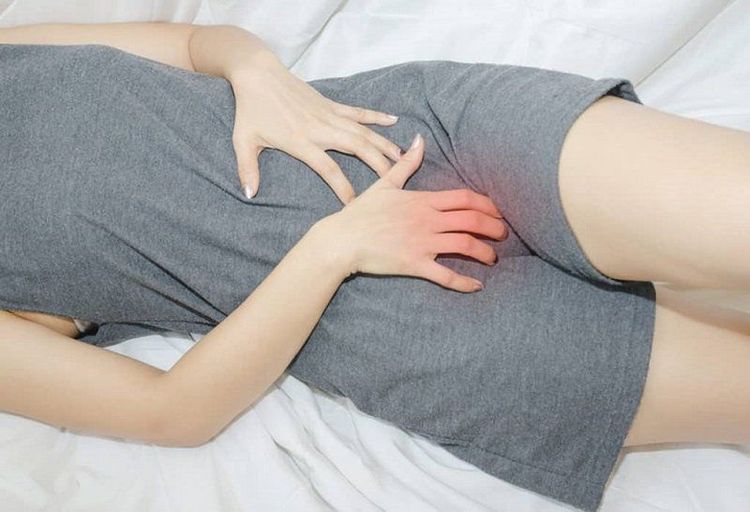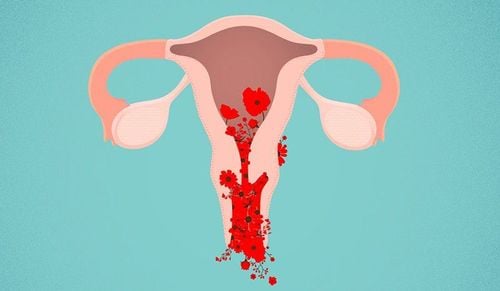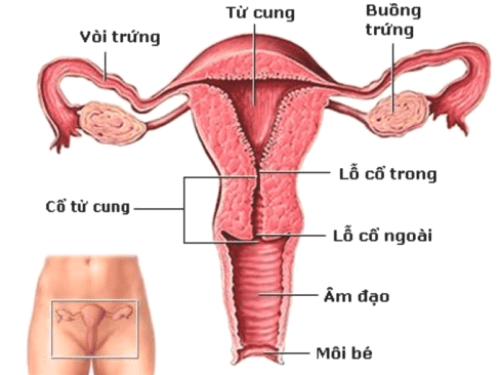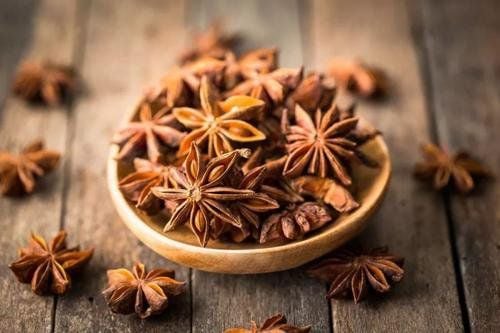Most women entering their 40s are going through premenopause. At this time, hormones in the body decrease and cause certain changes. However, sexual desire remains and affects family happiness. Therefore, "dryness" due to premenopause is a problem that any woman will be very worried about when hearing about it. Equip yourself with knowledge about menopause as well as solve the problem of dryness during this period to be both confident and keep the fire of marriage burning.
1. 40 years old and premenopause
Premenopause is the period of a few years before menopause. During this time, women will have hormonal disorders in the body (especially a decrease in estrogen) that cause symptoms such as menstrual disorders, insomnia, irritability, hot flashes dryness, etc. Depending on each person's constitution, these symptoms can last for a few months or even many years after the last menstrual period. Then comes the menopause stage, when eggs will no longer be released and there will be no menstrual cycle.
2. "Dryness" in the premenopausal stage
"Dryness" or vaginal dryness is mainly caused by the fact that in the premenopausal stage, the body's hypothalamus - pituitary - ovary endocrine axis will reduce the secretion of GnRH hormone, causing a decrease in estrogen levels. That means poor functioning of the ovarian endocrine glands, leading to a decrease in sexual desire.
In addition, the sebaceous glands in the genital tract secrete poorly, causing the vagina to gradually dry out, the vaginal mucosa to become malnourished and gradually atrophied. At that time, the relationship between husband and wife is very difficult, even painful during intercourse, loss of sensation and causing some unpleasant symptoms such as itching, abnormal vaginal discharge, burning, and abnormal vaginal bleeding.
Some other causes of vaginal dryness are excessive stress, anxiety, prolonged stress, postpartum depression, some autoimmune diseases; infection; side effects of some antidepressants, blood pressure medications;
Signs of "dryness" in the premenopausal stage that women often encounter: Hot, itchy, dry vagina, pain during sex; No desire to be intimate with husband as before; No longer feeling pleasure in most sexual intercourse; some cases of small amount of bleeding after intercourse; vaginal discharge turns yellow or milky white after a few days of intercourse

2.1. Pain during intercourse
Normally, when stimulated, the vagina will secrete mucus that acts as a lubricant to make intercourse easier. In the case that the vaginal glands do not secrete enough mucus, intercourse will cause friction and pain.
This condition, if prolonged, will make women no longer feel interested in intercourse, avoid sex and somewhat affect their married life.
2.2. Vaginal burning
Normally, the vagina always has a constant pH environment that plays a role in destroying invading microorganisms. However, if the vagina secretes less fluid, it will lead to pH disorders and cause a burning sensation. This not only affects the relationship between husband and wife but also causes a lot of discomfort in the daily lives of women.
2.3. Having gynecological infections
The acidic vaginal pH should help kill some bacteria and fungi, protecting the vagina. However, "dryness" causes the vaginal pH to change, and some normal bacteria that normally live in the vagina grow stronger, combined with the invasion of external microorganisms, making women susceptible to gynecological infections such as vaginitis, cervical ectropion, adnexitis, etc.
3. Some changes that may occur during premenopause
- Menstrual disorders: Menstrual flow is more or less, and menstrual periods last for more or less days.
- Hot flashes (hot flashes): Quite common, a sudden feeling of heat that occurs throughout the face, neck or chest. Hot flashes may be accompanied by facial flushing, sweating and a feeling of chills afterward. Nighttime hot flashes can cause night sweats and insomnia.
- Difficulty sleeping: can be due to hot flashes at night, or night sweats.
- Urinary disorders: Urinary incontinence, frequent urination, urinary tract infections, difficulty holding urine when urinating.
- Decreased sexual desire: Due to mood changes, insomnia, vaginal dryness causing painful intercourse.
- Mood changes: Irritability, frustration, discomfort, emotionality, crying. Decreased ability to concentrate, forgetfulness
- Body changes: Weight gain, increased belly fat, flabby muscles, wrinkled skin, loss of elasticity, dry hair, brittle hair, atrophied breasts, sagging...
4. Treatment of "dryness" at age 40
Treatment of vaginal dryness depends on the severity of the disease with 3 levels: lifestyle changes, alternative foods and the third is medication.
4.1. Prolong foreplay
A reasonable foreplay time will help women be more stimulated, so the glands in the vagina have time to secrete a reasonable amount of mucus. Menopause is a stage that every woman has to go through in life and "dryness" at this age is encountered by many women. To improve this condition, each woman should boldly share with her husband to sympathize and find a way to overcome it.
4.2. Reasonable diet
Some foods will help solve the problem of dryness in the pre-menopause stage:
- Foods rich in fatty acids to support the production of more vaginal lubricants such as tuna, salmon, sesame seeds, and sunflower seeds…
- Increase green vegetables, drink enough water, and B vitamins, and change your lifestyle.
- Keep your body hydrated: Women should drink plenty of water every day, do not wait until you are thirsty to drink. Drink at least 2 liters of water per day to purify the body, and increase nutrient absorption. In addition, for women who are suffering from "dryness", water helps reduce dryness during sex, making the vagina softer and moister.
- Avoid alcoholic and caffeinated drinks: Alcoholic and caffeinated drinks not only affect general health but also dry out the vagina, remove them from the menu and replace them with vegetable juices.
- Avoid douching and using soaps or detergents: The vagina will lose its pH balance if you use strong cleaning products or douche too deeply. You should clean the vagina with feminine hygiene solutions and choose cleaning solutions with benign herbal ingredients to gently wash the vagina.
- Use lubricant gel: Women can refer to using lubricant gel every time they have sex, lubricant gel has the effect of wetting the vagina for many hours, making sex easier and reducing pain during sex. However, this is only an immediate solution, it cannot eliminate all the problems caused by "dryness".
- Talk to your partner: Share your feelings with your husband to get sympathy, cooperation between the two of you will bring better emotions for "love". This is very important to improve women's mood and avoid psychological stress.
- Do not wear underwear that is too tight: Wearing underwear that is too tight will make the private area stuffy, too wet, making the vagina a favorable environment for fungi, bacteria and parasites. Inflammation causes vaginal dryness and worsens the problem.

4.3. Medication
Supplementing estrogen: The cause of vaginal dryness after giving birth is a decrease in estrogen levels, so to improve estrogen levels, women can supplement foods high in isoflavones such as cherries, soybeans, celery, nuts... or take estrogen supplements.
4.4. Regular gynecological examination
Every 6 months, women need to have a gynecological examination to promptly detect any problems they are facing. If vaginal dryness after giving birth is not improved by the above measures, you should consult your doctor about a more suitable solution.
To arrange an appointment, please call HOTLINE or make your reservation directly HERE. You may also download the MyVinmec app to schedule appointments faster and manage your reservations more conveniently.








